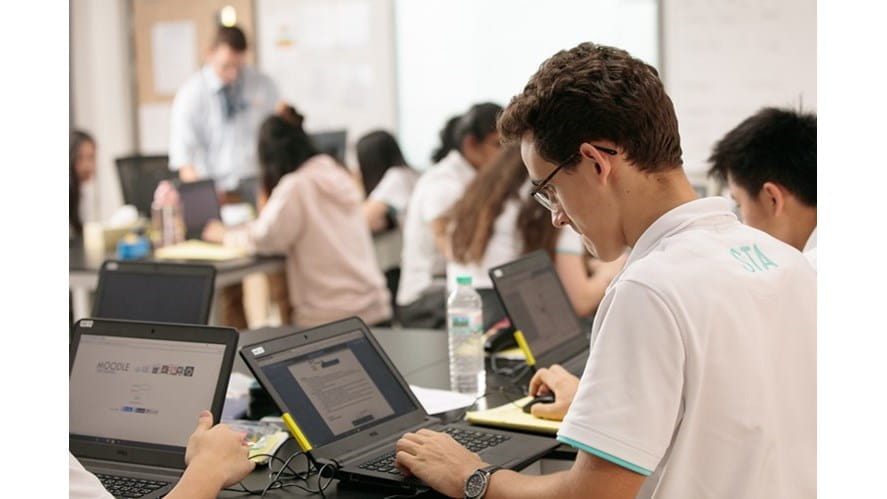We use cookies to improve your online experiences. To learn more and choose your cookies options, please refer to our cookie policy.

How is this month’s theme reflected in our Appropriate Uses of Technology policy?
In last week’s Newsletter, I introduced February’s monthly theme: “We are safe, healthy and balanced.”
It is now a year since we introduced our Appropriate Uses of Technology policy, following half a term of “Breathing Space” and a great deal of discussion with the students about the advantages and disadvantages of using mobile phones in school.
Over the last year we have continued these discussions, both among teachers, with parents and with students, especially with some of those students who are continuing to find it difficult to keep to our Appropriate Uses of Technology guidelines. As you can see from the graphic above, we define the Appropriate Use of Technology to be “an appropriate app/website, in an appropriate place, at an appropriate time”.
Discussions have also continued in the world beyond St Andrews International School Bangkok, with, for example, the French Government banning mobile phones in school for students since the start of this school year. At St Andrews, we agree with Pasi Sahlberg, former Director General at the Finnish Ministry of Education and Culture and now a Professor of Education Policy at the Gonski Institute for Education at Australia’s University of New South Wales in Sydney, that
“Blanket bans are rarely the most effective ways to fix human behavioral problems. Today’s children were born in a world where technology and digital gadgets were already a normal part of life. From an educational perspective, banning smartphones in schools would be an easy solution but not necessarily the smartest one.
Instead, we should teach children to live safe, responsible and healthful lives with and without their smartphones and other mobile devices.”
Pasi Sahlberg continues by arguing that “Education can be a powerful tool to teach children to exercise self-control and to live better lives. But schools can’t do this alone”, giving five suggestions for parents to share with their children, which I thought I would share with you before next week’s half-term:
Sleep more
Play more outside
Spend less time with digital media
Read more books
Write letters to ones you love
Only last week, the United Kingdom Chief Medical Officer (CMO) published a commentary on screen-based activities and children and young people’s mental health and psychosocial wellbeing. The full commentary is available online here, but I have highlighted an infographic showing her advice for parents and carers on children and young people’s screen and social media use below.
It is very interesting to see the overlaps with Pasi Sahlberg’s advice above, and I was particularly pleased to see the CMO’s recommendation that parents and children “are aware of, and abide by, their school’s policy on screen time”.
Please talk to your children about their use of mobile phones, maybe using our Appropriate Uses of Technology guidelines, Pasi Sahlberg’s and/or the UK CMO’s advice, during next week’s half-term.
We will be reminding all the students about our Appropriate Uses of Technology guidelines on the morning of Monday 25 February and continue to work with parents, especially with some of those students who are continuing to find it difficult to keep to our Appropriate Uses of Technology guidelines, in the second half of this term.
If you would like to follow Pasi Sahlberg’s fourth suggestion and read a book, maybe with your son/daughter, during half-term I thoroughly recommend Professor Sarah-Jayne Blakemore’s Inventing Ourselves: The Secret Life of the Teenage Brain.
Each year during Term 2 we ask parents about their future plans and whether families will be returning to St Andrews next academic year. While we understand this may be difficult for some families at the present time, we appreciate your support and cooperation in responding to the Leavers’ Survey when it is e-mailed by our Admissions Team later this week.
Have a great half-term!
Roo Stenning
Head of High School
The school’s full Google Calendars are available on Moodle, accessible via http://calendar.standrews.ac.th/.